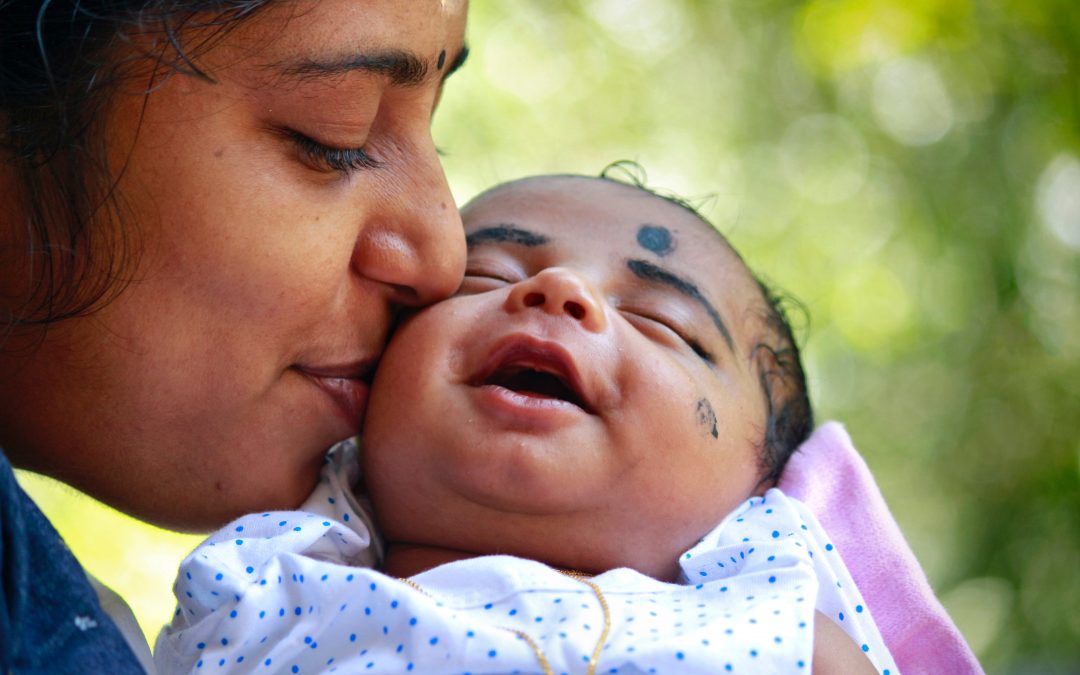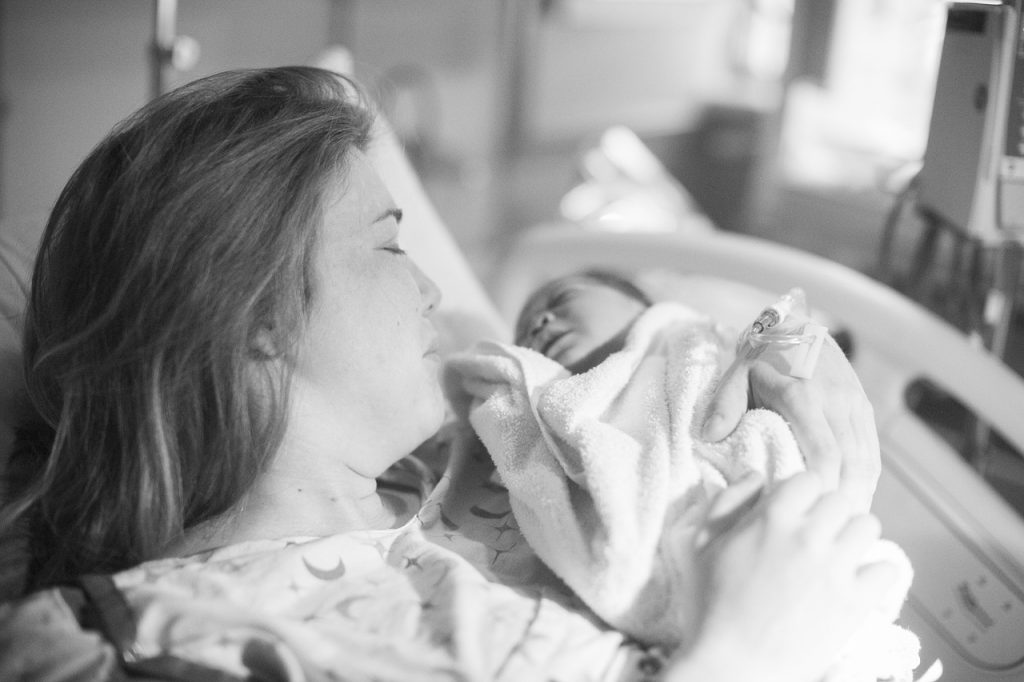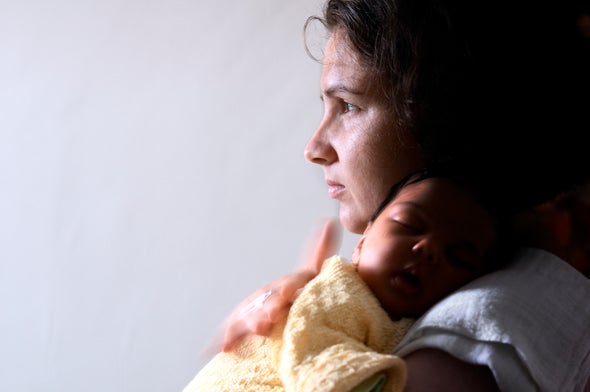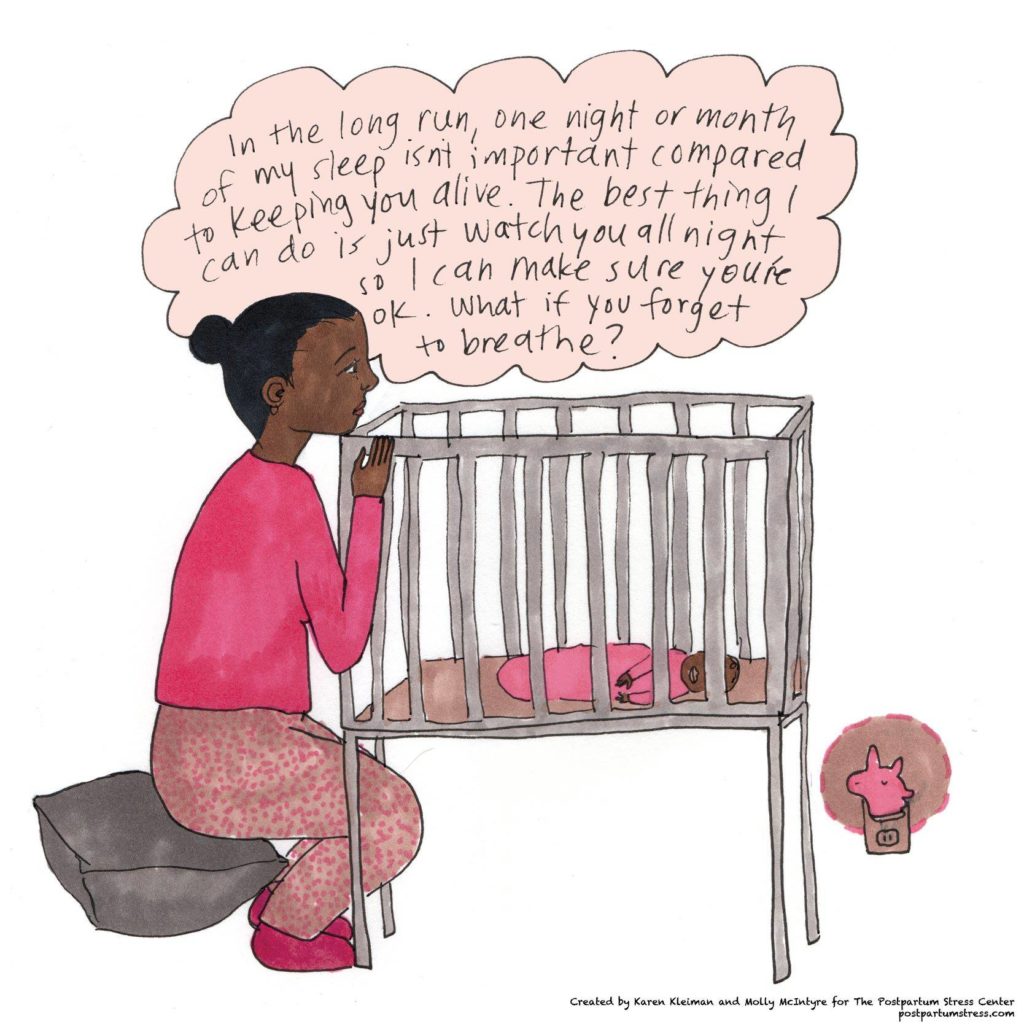
by Anastasia Chrysostom | Dec 10, 2019 | Maternal Mental Health
by Tanya Thomas, APC
Every day mothers are born. We think about babies being born, but we never really think about, or look at what it is like when a mother is born. Some mothers have 9 months to prepare; others have longer (or shorter) journeys through the adoption process; others try, and try, and try again; some give their bodies as human incubators so others can become a mother.
Motherhood is Both the End and the Beginning – the end of who we were and the beginning of something new.
It’s the end of sleeping in. It’s the end of our belly button as we knew it. It’s the end of time being our own. It’s the end of being a heavy sleeper. It’s the end of sleeping on our stomachs. It’s the end being the only important person in our lives. It’s the end of disposable income. It’s the end of thinking about ourselves.
And we trade all that in for? A screaming bundle of fragile humanity. Sleepless nights. Poop that goes everywhere. Stretched out stomachs. Drooping boobs. Pregnancy/new baby brain. Waking at the clock tick certain the baby has fallen. A third party in our most intimate relationships.
And Everyone Expects us to be Happy About it and a Natural
That just is NOT reality. The transition into motherhood is even bigger and more dramatic than going through puberty. It’s the hair and skin changes, the body changes – did I mention the hormone changes- yikes, moody. Yet no one tells us that motherhood may not be the joyful bliss of expectations. There are plenty of wonderful moms who do not love the infant stage. Mothering is not natural – it is a learned skill. We don’t know how to change a diaper automatically, or when to feed or how much to feed, or how to dress a squiggling creature.
Unlike puberty, when we encourage the adolescent through their struggles; mothers are often isolated – alone – away from family and friends. Not sure what to do. They may want to mother just like their mom, or they may want to try something entirely different. Thinking it through is hard when sleep is rare. Taking the next step – moving forward – finding your cheerleader to help and encourage you is so important. Because you can make this transition and be the mother you want to be.
One day, when you finally get sleep, you wake up and realize that just like a caterpillar that went into its cocoon and emerged changed, you have become something so different and yet the same. Here you are:

At the Beginning of Many New Adventures
This is the change into motherhood – this is the new beginning. Welcome to motherhood.
Tanya Thomas, APC I am a mom myself – I have four. We stay busy between school, sports, and music! I love nurturing the wonderful human beings that my children are and, at times, am challenged by their being someone/something other than myself! I find motherhood to be both the peaceful journey down a river and an epic adventure filled with unforeseen events
Learn more about Tanya and how she can help you, Here!
Follow us on Facebook, Instagram and Pinterest to see more advice from our therapists!
Facebook Instagram Pinterest
All I could think was that it must be because a pharmacist had to disclose information to me personally; a duty of care. There was no other logical reason.

by Anastasia Chrysostom | Oct 1, 2019 | Maternal Mental Health
by Tanya Thomas, APC
You mean there is more than postpartum depression? Yes. Let’s take a closer look at Perinatal Mood and Anxiety Disorders (PMAD’s). I work with moms – a lot of moms. I see a lot of worry around just about everything – from feeding schedules, to pumping, to sleep, etc.
The worst anxiety is around saying “I’m struggling”.
It gets in the way of getting help. The sideways looks from other moms… The worry that if I’m struggling as a new mom, I could end up being the next news story. And so, the new mom keeps her struggles to herself.
The first step is understanding that not all struggles are the same.
There are 6 different levels a mom may struggle at. Except for Baby Blues (first 2 week postpartum) all can occur anytime during pregnancy and the first year after birth.

Here’s a summary:
- Scary thoughts – An example is: falling down a flight of stairs with the baby. There is a piece of this that is instinct. The mom’s instinct is telling her to be careful with her baby, but the hormones, the lack of sleep, etc. can ramp this warning up into something scary. 90% of moms, in fact, struggle with scary thoughts. These scary thoughts are normal.
- Perinatal Anxiety – this tends to be around feeling crazy, losing control, and the “what-ifs”. Trying to get rid of anxiety only increases the anxiety a mom is feeling so it’s important for her to learn the difference between productive worry and worry that just eats up mental and emotional space.
- Perinatal Depression – this is the best friend of perinatal anxiety. Moms often feel that they simply do not feel like themselves – their appetite changes, they feel overwhelmed, sadness, guilt and shame, and mood swings just to name a few. Understanding the role that hormones play, the relationships the mother is living, and her personal and psychological history will help a new mom understand where she is and how to create the change needed for improved mental health.
- Perinatal OCD – moms may feel very anxious about their ability to care for the baby. So much so that they have a fear of harming their infant. They may engage in activities such as ordering or arranging the baby’s belongings to “help” them. Or constantly checking on the baby while sleeping. This hyper-vigilance gets in the way of the mom having time to care for herself.
- Perinatal PTSD – moms may be experiencing flashbacks to previous events. These flashbacks interrupt her everyday life. The flashbacks are spontaneous and may appear as dreams at night. She often feels invisible. You do not have to struggle through this alone.
- Perinatal Psychosis – these women lose touch with reality. The option of having tea on the moon with the president is a reality. This is a medical emergency. The news stories that we hear about women doing horrible things – they likely have perinatal psychosis.
Please remember that:
Thoughts Do Not Equal Actions
Just because you are having scary thoughts does not make you a bad mom. Help is around the corner.
There are no sideways looks in my office.
There are no headlines in the news.
Only one real mama to another – this is hard – we can get through it together. You can thrive.

Follow us on Facebook, Instagram and Pinterest to see more advice from our therapists!
Facebook InstagramPinterest
Tanya Thomas, APC I am a mom myself – I have four. We stay busy between school, sports, and music! I love nurturing the wonderful human beings that my children are and, at times, am challenged by their being someone/something other than myself! I find motherhood to be both the peaceful journey down a river and an epic adventure filled with unforeseen events.
Learn more about Tanya and Maternal Mental Health here!






Recent Comments